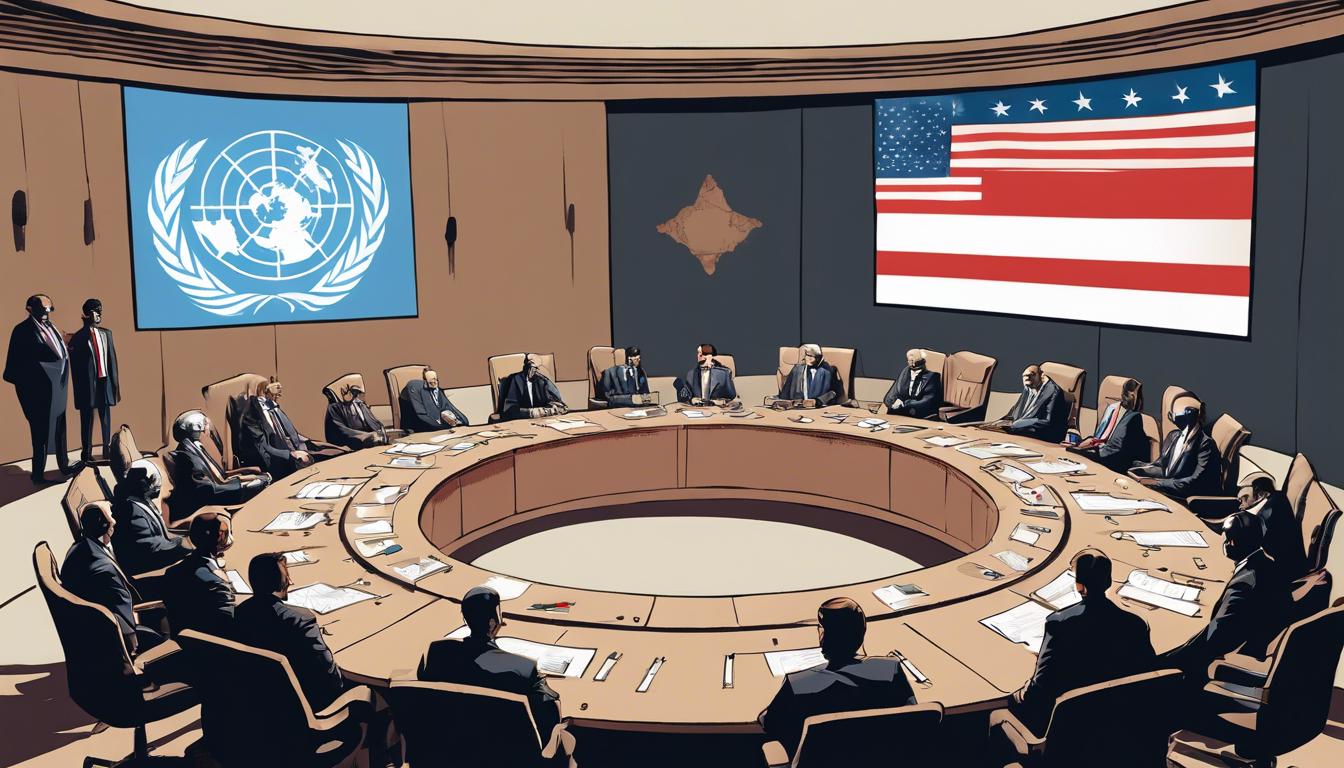In response to recent drone and missile attacks by Iran on Israel, world leaders including the British Foreign Secretary, the French President, and US President Joe Biden have called for non-escalation to avoid broader regional conflict.
World leaders are advocating for restraint following Iran’s recent direct drone and missile attack on Israel, which has significantly elevated tensions in the Middle East. The British Foreign Secretary, alongside the French President and German officials, is emphasizing the importance of non-escalation. The United Nations Security Council has convened an emergency meeting, advocating for calm but has not taken definitive action yet.
In response to the attack, Israel has strategically lifted certain restrictions, such as reopening schools, and has activated reserves specifically for operations in Gaza, indicating a measured approach to the immediate threat. This decision comes amid counsel from international figures including former UK Prime Minister David Cameron and US President Joe Biden, both of whom have advised against a military comeback, pointing to the successful interception of most incoming drones and missiles, describing it as a “win” for Israel’s defense capabilities.
Further complicating the international relations landscape, debates within the UK regarding the designation of Iran’s Islamic Revolutionary Guard Corps (IRGC) as a terrorist organization have surfaced. Jonathan Hall KC, the UK’s terror watchdog, has advised against such a measure, suggesting no practical benefit and spotlighting existing legislative powers under the National Security Act 2023 to counter state threats.
As the global community continues to watch closely, Israeli Prime Minister Benjamin Netanyahu along with top officials, including Defence Minister Yoav Gallant and former Defence Minister Benny Gantz, has held discussions on the nation’s response. Mixed signals from the war cabinet suggest a complex debate between retaliatory measures and the pursuit of strategic calm, influenced in part by advice from international allies.
The broader geopolitical ramifications are profound, with international airlines suspending flights to the region as a precaution. The situation remains fluid, with the potential for an escalation that could involve wider regional conflicts, underscoring the high stakes for international diplomacy and peacekeeping efforts in the volatile Middle East.













